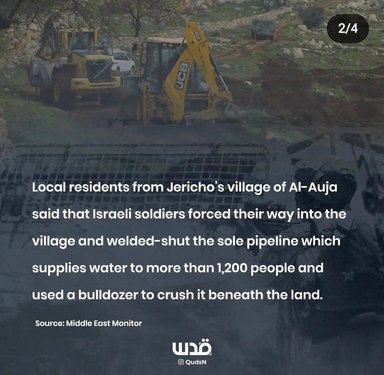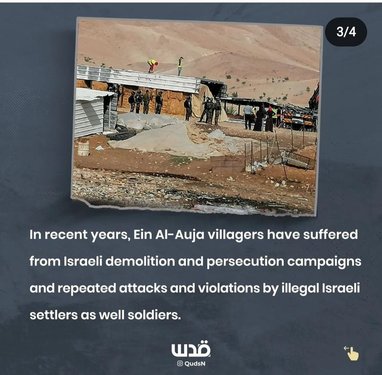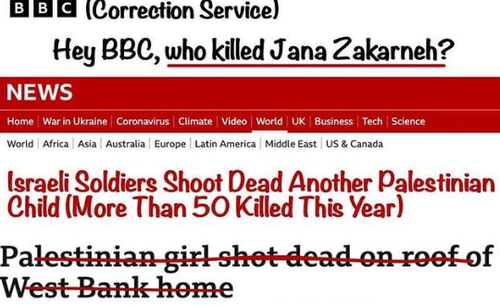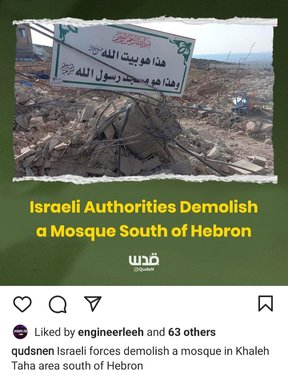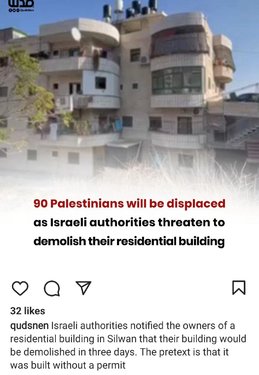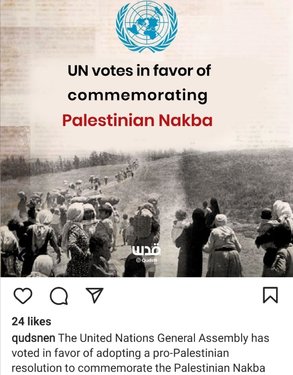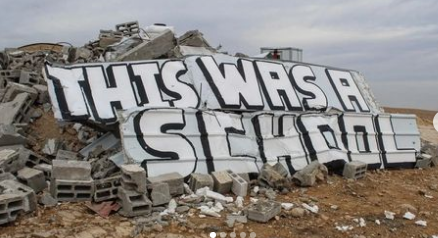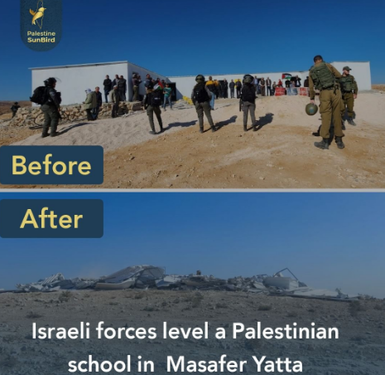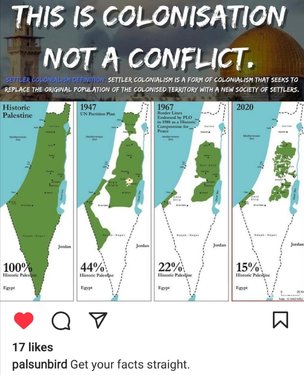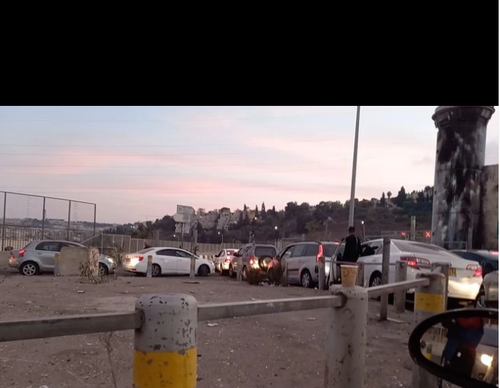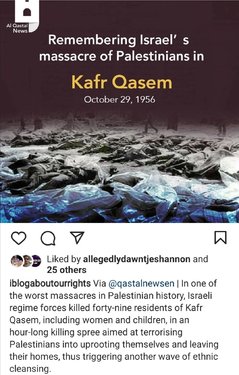-
Posts
8,466 -
Joined
-
Days Won
773
Content Type
Profiles
Forums
Events
Everything posted by ummtaalib
-
Q. I have a niece and nephew who are mute and baligh. How should they pray salaah? (Question published as received) A. Salaah of a Mute person In principle, a mute person will perform Salaah in accordance with their ability and capacity of fulfilling the obligation of Salaah. A mute person will fulfil their Salaah simply by performing the postures of Salaah as is normally done. The recitation of Qiraat and the various other recitations in Salaah will not be required of them. It is Mustahab (preferable) for them to move their tongues assimilating recitation if they can. (Namaaz ke Masaa’il Ka Encyclopaedia 3/362-363) Salaah of a Deaf person The same ruling as above applies to a deaf person. However, if a deaf person can recite the required Qira’ah for Salaah then that will be compulsory. If they are unable to recite the minimum required Qira’ah for Salaah then they will recite whatever amount they can. If they can recite the Takbeer-e-Tahreemah (the first Takbeer through which one begins his Salaah), the Tashahhud and the end Salaam, they will be required to do so as well. (Namaaz ke Masaa’il Ka Encyclopaedia 1/236) Note: Sign language has become common means of communication with people who have such disabilities. This can be used to teach them about Islam and its injunctions. And Allah Ta’ala Knows Best Mufti Moosa Salie Mufti Taahir Hansa (The answer hereby given is specifically based on the question asked and should be read together with the question asked. Islamic rulings on this Q&A newsletter are answered in accordance to the Hanafi Fiqh unless otherwise stated.) Fatwa Department Jamiatul Ulama (KZN) Council of Muslim Theologians
-
اَللّٰهُمَّ إِنِّيْ أَسْأَلُكَ الْعَافِيَةَ فِي الدُّنْيَا وَالْآخِرَةِ ، اَللّٰهُمَّ إِنِّيْ أَسْأَلُكَ الْعَفْوَ وَالْعَافِيَةَ فِيْ دِيْنِيْ وَدُنْيَايَ وَأَهْلِيْ وَمَالِيْ ، اَللّٰهُمَّ اسْتُرْ عَوْرَاتِيْ وَآمِنْ رَوْعَاتِيْ ، اَللّٰهُمَّ احْفَظْنِيْ مِنْ بَيْنِ يَدَيَّ ، وَمِنْ خَلْفِيْ ، وَعَنْ يَّمِيْنِيْ ، وَعَنْ شِمَالِيْ ، وَمِنْ فَوْقِيْ ، وَأَعُوْذُ بِعَظَمَتِكَ أَنْ أُغْتَالَ مِنْ تَحْتِيْ O Allah, I ask You for well-being in this world and the next. O Allah, I ask You for forgiveness and well-being in my religion, in my worldly affairs, in my family and in my wealth. O Allah, conceal my faults and calm my fears. O Allah, guard me from in front of me and behind me, from my right, and from my left, and from above me. I seek protection in Your Greatness from being unexpectedly destroyed from beneath me. Allāhumma innī as’aluka-l-ʿāfiyata fi-d-dunyā wa-l-ākhirah. Allāhumma innī as’aluka-l-ʿafwa wa-l-ʿāfiyata fī dīnī wa dunyāya wa ahlī wa mālī, Allāhumma-stur ʿawrātī wa āmin rawʿātī. Allāhumma-ḥfaẓnī mim bayni yadayya wa min khalfī, wa ʿay-n yamīnī wa ʿan shimālī wa min fawqī, wa aʿūdhu bi-ʿaẓamatika an ughtāla min taḥtī. ʿAbdullāh b. ʿUmar (raḍiy Allāhu ʿanhumā) narrated: “The Messenger of Allah ﷺ never failed to say these words in the morning and in the evening.” (Abū Dāwūd 5074) Brief Commentary • In this duʿā’, we seek Allah’s forgiveness and ask Him for wellbeing. This is a very important thing to ask Allah, as the Prophet ﷺ said, “Ask Allah for forgiveness and wellbeing, for no one is given anything after certainty that is better than wellbeing” (Tirmidhī 3557). • When seeking Allah’s forgiveness, we are asking Him to forgive our sins and also wipe them off our record of deeds. • Wellbeing in this life includes protection from physical, mental and spiritual ailments, including sins. • When we ask for wellbeing, we are asking Allah to save us from all trials and tribulations, to strengthen our heart and our physical state so that we meet Him free from sins. • We ask Allah for wellbeing ‘in this world and the next’. This encompasses all the states that we will be in. • Wellbeing in the next life includes protection from the punishment of the grave, terrors of the Day of Judgement, and the torments of the Hellfire. • To strengthen our request, we repeat it again, clarifying that we want wellbeing in our religion, our life, our family, and wealth. • Wellbeing in our ‘religion’ means to be saved from committing sins or having incorrect beliefs; and ensuring our tawḥīd of Allah is complete. • Wellbeing in our ‘worldly affairs’ means to be saved from calamities and errors that cause us to be heedless of the remembrance of Allah or completing acts of worship. • Wellbeing in our ‘family’ means that we are all saved from trials and evil, including being saved from having problems with each other. • Wellbeing in our ‘wealth’ is protection from it being lost or stolen; and to be saved from spending it in a way that displeases Allah. • As a supplement to asking Allah for wellbeing, we also ask Him that He conceals our faults. This includes everything we dislike for others to know about us. • We also ask Him to calm our fears, so that we can live peacefully. • For the final part of the duʿā’, we ask Allah to protect us from all angles. This includes the four angles that Shayṭān promised to attack us from, as Allah mentions in the Qur’ān that Shayṭān says, “And then I shall come to them from in front of them, from behind them, from their right, and from their left…” (7:17). • In addition to these four angles that Shayṭān promised to attack us from, we also ask Allah to protect us from the remaining two angles, which are from above us and from beneath us. • The request to be saved from beneath us is a stronger request (i.e. the addition of ‘from being unexpectedly destroyed’ instead of just ‘beneath me’; and asking through Allah’s ‘Greatness’). This could refer to being swallowed up by the earth as a punishment by Allah, just as Pharaoh and Qārūn were destroyed, and will happen to people towards the end of times. It could also refer to unexpected difficulties. Thus, we are asking Allah to protect us from committing something that deserves for us to be punished in this life by Him. Action Points • Always ask Allah for forgiveness and wellbeing as it is from the greatest gifts you can receive. • The whole duʿā’ is all-encompassing within the first few words. However, we repeat this request and detail our requirements further so that we show insistence in our request – and this is something that Allah loves. • We also repeat and expand on this request so that we actually ponder over what we want and therefore request it from our heart. • Shayṭān tries to attack you from all angles so ensure you are always aware of his plots, and ask Allah to protect you from him. lifewithallah
-
-
Israeli forces kill Palestinian teen in occupied West Bank raid Jana Majdi Zakarneh, 16, was shot dead while standing on the roof of her home during an Israeli military raid on Jenin. Zakarneh was standing on the roof of her home when she was shot dead, according to local media. The ministry said she was shot in the head. The Associated Press later reported that the Israeli military had acknowledged that its troops fatally shot a teenage Palestinian girl during an operation in the occupied West Bank, saying she was unintentionally hit by fire aimed at gunmen in the area. In a statement, the Israeli military said an initial inquiry found the girl “was hit by unintentional fire aimed at armed gunmen” on a nearby rooftop. “It appears the girl who was killed had been on the roof of one of the houses near the gunmen,” it said. The statement added the forces opened fire after local militants hurled firebombs and opened fire at the soldiers. The army said that its commanders “regret any harm to uninvolved civilians”, but said that it would press ahead with its operations. Full article
-
Israeli journalists lie at World Cup The condemnation of the "#Israeli" occupation and its crimes at #Qatar World Cup 2022 has forced "Israeli" media reporters to face a harsh reality they were not expecting. Some of them have even pretended to be from a different country. Media correspondent at @yedioth Raz Shechnik claimed to be Ecuadorian for a day, in an attempt to avoid being shunned by football fans upon trying to interview them. "We feel hated, surrounded by hostility, and unwanted," Raz Shechnik, the media and music correspondent for Hebrew news outlet Yedioth Ahronoth, wrote in an op-ed published on Sunday, November 27. "After a while, we decided to claim we were Ecuadorian when someone would ask us where we were from," Shechnik went on to admit, claiming the experience has definitely not been "fun." He also alleged that his crew is "followed at all times by Palestinians, Iranians, Qataris, Moroccans, Jordanians, Syrians, Egyptians, and Lebanese – all giving us looks full of hate." This is all happening, according to Shechnik, despite his explanation to fans that the "Israelis" "come in peace." "They would truly like to see us wiped off the face of the earth, and any notion of Israel evokes their complete disgust," the reporter concluded. www.instagram.com/p/ClgbQDmI4uE/
-
On the 23rd of November the IOF demolished newly built Isfey al-Fauqa school. It provided education to 22 students up to 5th grade (6-11 year olds).The next nearest school is 4 kilometres away and also at risk of demolition.Demolition commenced while students were still inside the building. Sound bombs were used on the children.This is a normal day in Masafer Yatta. The people here are subject to meticulously planned ethnic cleansing. The occupation cuts power. The occupation cuts water pipes. The occupation cuts education and it cuts lives short.The army not only destroyed their school but confiscated furniture including the students chairs. Solidarity With Palestine (@palestinian.brigade) • Instagram photos and videos
-
Israeli journalists have been ignored by Arab fans in Qatar this week. Videos have gone viral on social media One video shows an Egyptian football fan smiling serenely as an Israeli broadcaster introduces him live on air. Then he leans into the microphone with a message: “Viva Palestine.” Another clip from the streets of Doha this week shows a group of Lebanese men walking away from a live interview with a reporter they have just learned is Israeli. One shouts over his shoulder: “There is no Israel. It’s Palestine.”
-
Solidarity with Palestine at the Worl Cup Palestinians living in Qatar, as well as those visiting, are taking advantage of the world’s attention on the World Cup to make their flag prominent. “The World Cup has given us a platform to make our voice heard,” Bader, a Palestinian based in Qatar, told Al Jazeera during a night of festivities in Lusail, home to Qatar’s biggest stadium, which will host the World Cup final. "The World Cup has given us a platform to make our voice heard,” Bader, a Palestinian based in Qatar, told Al Jazeera during a night of festivities in Lusail, home to Qatar’s biggest stadium, which will host the World Cup final. Most Palestinians were out to make their presence felt, not just with the flags, but with their attire as well. Bader wore a T-shirt with a map of Palestine and “Free Palestine” emblazoned on it, and had a Palestinian keffiyeh (scarf) and flag wrapped around his neck. Al-Jazeera
-
15: Salam: The End of An Epic Journey Now that you have made duʿā’, turn to your right and left side, saying, .اَلسَّلَامُ عَلَيْكُمْ وَرَحْمَةُ اللّٰهِ ، اَلسَّلَامُ عَلَيْكُمْ وَرَحْمَةُ اللّٰهِ May the peace and mercy of Allah be upon you. When performing your salām, your intention should be to convey greetings to the angels and your fellow congregants (when praying in congregation). Be grateful to Allah (ʿazza wa jall) who has allowed you to undertake this amazing journey. Thank Him for allowing you to be from those who remember Him (ʿazza wa jall) and are not drowning in heedlessness. Always consider the ṣalāh you are praying as potentially the last one. Feel a sense of shyness and grief about the shortcomings in your ṣalāh. Fear Allah (ʿazza wa jall) not accepting it, even though you may have done your best. It may be that a single sin acts as a barrier between you and your ṣalāh being accepted, so seek Allah’s forgiveness by saying أَسْتَغْفِرُ اللّٰهَ three times. Then spend some time seated in your place of prayer and recite the adhkār after ṣalāh. Feel sad on completing your ṣalāh, for it is the end of a special journey – a journey in which you were conversing with The Most Loving. Similarly, be careful of becoming conceited (ʿujb) about your khushūʿ and devotion in your ṣalāh. When Yaḥyā b. Waththāb (raḥimahullāh) completed his ṣalāh, he would remain in his place for some time afterward, and the worry of ṣalāh would be apparent on him. Ibrāhīm al-Nakhaʿī (raḥimahullāh) would also remain in his place for some time after the prayer, as if he was ill. Reflect Now that you have prayed, consider how the angels are at that moment ascending to Allah (ʿazza wa jall) with your ṣalāh. Think of them as being your envoys presenting your special gift in the court of the king. What kind of gift will you present? Have you sent the least important thing to you? Or have you given the matter careful thought and been diligent in preparation of the gift, and sent the best of what you have to offer?
-
The commencing of the holidays spontaneously brings about concern in the hearts of many a parent with regards to the activities of their youth during the holiday period. This very exciting period of one’s life which many a grey-haired man would love to return to is punctuated with periods of pleasure and pain, thrills and spills and joy and grief. A period that is characterised with a desire to experiment with anything and everything, dangerous or safe, within the limits and beyond. Not forgetting the inclination to rebel, the will to challenge authority coupled with the excitement of engaging in risky behaviour. Allah Ta’ala values and holds in great esteem that youngster who is obedient to Him during the prime of his youth, to such an extent that He gives him the privilege of being granted shade under His throne on that dreadful Day when there will be no shade except His. Abu Hurayrah Radiyallaahu anhu reported that the Prophet Sallallaahu alaihi wasallam said: “There are seven whom Allah will shade in His Shade on the Day when there will be no shade except His Shade: 1. A just ruler 2. A youth who grows up in the worship of Allah, the Mighty and Majestic 3. A man whose heart is attached to the Musjid 4. Two people who love each other for Allah’s sake, meeting for that and parting upon that 5. A man who is seduced by a woman of beauty and position, but be says: ‘I fear Allah’ 6. A man who gives charity secretly, such that his left hand does not know what his right hand gives 7. A man who remembers Allah in solitude and his eyes shed tears.” (Ṣaḥih Bukhari) In the light of this Hadeeth every young person should make a firm commitment to remain chaste and far from all forms of disobedience to Allah Ta’ala such as Zina, (be it of the eyes, ears, hands or the actual act itself), music and its associated evils, intoxicants and all other vices. Remember, there is no better time in a person’s life to serve Allah Ta’ala than the youthful stage of life. Our youth are tomorrow’s flag bearers of Deen. Its preservation lies in their hands. The following great personalities are remembered even today for their achievements during their youth: Nabi Ibraheem Alaihis Salaam challenged the ideology of his time, Nabi Yusuf Alaihis Salaam was entrusted with the country’s financial affairs, Hadrat Usama bin Zayd Radiyallaahu anhu was placed at the head of the army and Abdullah bin ‘Abbas Radiyallaahu anhu was considered an authority on Qur’aan and Tafseer at a tender age. Muhammad bin Qasim conquered Sind when he was only seventeen while Muhammad al-Faatih liberated Constantinople, and brought an end to the mighty Byzantine empire, when he was barely twenty one. Let us follow the example of none other than Muhammad Sallallaahu alaihi wasallam. In the prime of his youth he directed his energy in championing the cause of the poor, victims of injustice and oppression and in linking people to Allah Ta’ala, their Creator. Jamiatul Ulama (KZN) Council of Muslim Theologians
-
23 November 2022 Israel demolished a primary school built in the Palestinian community of Khirbet a-Safai al-Foqa in Masafer Yatta, in the part of the South Hebron Hills the military declared Firing Zone 918. The forces removed the tables and chairs from the classrooms and confiscated them. The demolition was greenlighted by Supreme Court Justice Isaac Amit, who cancelled the temporary order he issued yesterday freezing the demolition. Full article here
-
14: The Final Sitting (Salawat & Dua) Salawat Upon The Prophet ﷺ Next, after greeting and paying respect to the Lord of the worlds, you now move on to paying your respect to the best of creation ﷺ. You are continuing your assault on Shayṭān by stating the name of the person who irks him the most: his chief enemy, the Messenger of Allah ﷺ. After sending ṣalāh, you will go on to making duʿā’. The adab (propriety) of duʿā’ is that you first praise Allah (ʿazza wa jall), and then send ṣalawāt upon His beloved ﷺ, before asking Allah (ʿazza wa jall) for your own needs. The Messenger of Allah ﷺ said, “When one of you makes duʿā’, he should start with praising Allah and glorifying his Lord, and should then invoke ṣalāh on the Prophet ﷺ. He should then make duʿā’ for whatever he wishes” (Abū Dāwūd). Hence, the ṣalawāt follow the tashahhud which includes the praises of Allah. Take time out to ponder on the meaning of this beautiful Prophetic utterance, often referred to as al-ṣalāh al-ibrāhīmiyyah: اَللّٰهُمَّ صَلِّ عَلَىٰ مُحَمَّدٍ وَّعَلَىٰ اٰلِ مُحَمَّدٍ ، كَمَا صَلَّيْتَ عَلَىٰ إِبْرَاهِيْمَ وَعَلَىٰ اٰلِ إِبْرَاهِيْمَ ، إِنَّكَ حَمِيْدٌ مَّجِيْدٌ ، اَللّٰهُمَّ بَارِكْ عَلَىٰ مُحَمَّدٍ وَّعَلَىٰ اٰلِ مُحَمَّدٍ ، كَمَا بَارَكْتَ عَلَىٰ إِبْرَاهِيْمَ وَعَلَىٰ اٰلِ إِبْرَاهِيْمَ ، إِنَّكَ حَمِيْدٌ مَّجِيْدٌ O Allah, honour and have mercy upon Muḥammad and the family of Muḥammad as You have honoured and had mercy upon Ibrāhīm and the family of Ibrāhīm: indeed, You are the Most Praiseworthy, the Most Glorious. O Allah, bless Muḥammad and the family of Muḥammad as You have blessed Ibrāhīm and the family of Ibrāhīm: indeed, You are the Most Praiseworthy, the Most Glorious (Bukhārī). اَللّٰهُمَّ صَلِّ [O Allah, honour and have mercy]: O Allah, have mercy upon Muḥammad and praise him in the lofty assembly. The ‘lofty assembly’ refers to the elite angels who are close to Allah (ʿazza wa jall). Ṣalāh also means ‘honour him’ i.e. honour him in this world by elevating his mention, granting victory to his dīn and preserving his sharīʿah; honour him in the hereafter by rewarding him abundantly, accepting his intercession on behalf of his ummah and granting him the loftiest station of glory (maqām maḥmūd). وَعَلَىٰ اٰلِ مُحَمَّدٍ [And upon the family of Muḥammad ﷺ]: This phrase could be a reference to: 1) His family 2) His followers. By invoking ṣalāh on his followers, you are honouring the Messenger ﷺ by honouring those who are dear to him. بَارِكْ [Bless]: Bārik is derived from barakah, and linguistically has two meanings: (1) to be firm and continuous and (2) to grow and increase. Thus, it is similar to stating, “O Allah continue to bless and honour Muḥammad ﷺ and his followers. Increase him and his followers in every form of good. Bless him in the mission that he came with and make his legacy universal.” حَمِيْدٌ [The Most Praiseworthy]: Allah (ʿazza wa jall) is worthy of all praise in His Essence, His Attributes and His Actions. He also praises His praiseworthy slaves. One of His greatest blessings is that He allowed His creation to praise Him. مَجِيْدٌ [The Most Glorious]: His glory and greatness know no ends. He is the Most Generous and bestows endless favours. He is Noble and Exalted. The glory of Allah (ʿazza wa jall) refers to His beautiful actions combined with nobility. The Messenger of Allah ﷺ said: “Allah has angels who travel around the earth conveying to me the salām of my ummah.” (Nasā’ī). Why do the ṣalawāt end with these two specific names? In asking Allah (ʿazza wa jall) to bestow ‘ṣalawāt’ on His beloved ﷺ, you ask Him to praise him, honour him, and elevate his mention. Thus, it is befitting that you ask ‘alḤamīd’ (The Most Praiseworthy) and ‘al-Majīd’ (The Most Glorious) – the real and ultimate source of praise and glory – to increase the Messenger ﷺ in praise and glory. Why do we send ṣalawāt upon the Messenger ﷺ ? Along with complying with Allah’s command, sending ṣalawāt on the Messenger ﷺ is a manifestation of our love, reverence and obedience to him. He was sent as a mercy for mankind, and he always remembered us and worried about us. On one occasion he lifted his hands and while weeping, invoked, “O Allah! My ummah, my ummah!” Allah sent Jibrīl down with the glad tidings, “Muḥammad, surely we will please you in regards to your ummah and we will not cause you grief ” (Muslim). In every ṣalāh, he would ask Allah (ʿazza wa jall) to forgive us (Ibn Ḥibbān). He missed us and yearned to see us. He once said, “I wish to see my brothers!” The Companions (radiy Allāhu ʿanhum) asked, “O Messenger of Allah, are we not your brothers?” He replied, “You are my Companions, but my brothers are those who have not yet come in the world. I will welcome them at the Ḥawḍ (blessed fountain)” (Nasā’ī). Unlike the other Messengers who had their exclusive duʿā’ accepted in this world, the Messenger ﷺ reserved his duʿā’ for the Day of Judgement where he will intercede on our behalf (Bukhārī). The Messenger of Allah ﷺ said, “Whoever sends ṣalāh upon me once, Allah will send ṣalāh upon him tenfold, erase ten sins from him, and will raise him ten degrees in status.” (Nasā’ī). Duʿa’ Before the end of the ṣalāh, Allah (ʿazza wa jall) gives us another opportunity to make duʿā’. This is one of the best times for duʿā’ and is likely to be accepted. The Prophet ﷺ was asked, “Which duʿā’ is most likely to be responded to?” He replied, “During the last part of the night and at the end of the obligatory prayers” (Tirmidhī). Thus, even if you have forgotten to make duʿā’ in your sajdah, you can ask now. Through His mercy, Allah (ʿazza wa jall) has blessed you with two opportunities during ṣalāh to make duʿā’. The Messenger of Allah ﷺ said that after the tashahhud, “He should choose any supplication which he likes, and then ask Allah with it” (Abū Dāwūd). During your duʿā’, it is best to utter any of the following adhkār, or to utter any other duʿās from the Qur’ān and Sunnah; you may also ask with words similar to them. Imām al-Ghazālī (raḥimahullāh) said, “At the end of your ṣalāh, supplicate with the duʿās transmitted from the Prophet ﷺ with humility, fear, earnest pleading and the conviction that it will be answered. Also include your parents and the believers in your duʿā’.” (See our publication ‘I Am Near’ for a collection of duʿās.) Try to memorise and supplicate (especially in your nafl prayers) with the following adhkār of the Prophet ﷺ: اَللّٰهُمَّ إِنِّيْ ظَلَمْتُ نَفْسِيْ ظُلْمًا كَثِيْرًا ، وَّلَا يَغْفِرُ الذُّنُوْبَ إِلَّا أَنْتَ ، فَاغْفِرْ لِيْ مَغْفِرَةً مِّنْ عِنْدِكَ ، وَارْحَمْنِيْ إِنَّكَ أَنْتَ الْغَفُوْرُ الرَّحِيْمُ O Allah, I have wronged myself greatly and no one forgives sins except You; grant me forgiveness from You and have mercy upon me. You are the Most Forgiving, the Most Merciful (Bukhārī). In this duʿā’, you are acknowledging that only He (ʿazza wa jall) can forgive. You are simultaneously humbling yourself, admitting your shortcomings and asking Him (ʿazza wa jall) through His Blessed Names. اَللّٰهُمَّ إِنِّيْ أَعُوْذُ بِكَ مِنْ عَذَابِ جَهَنَّمَ ، وَمِنْ عَذَابِ الْقَبْرِ ، وَمِنْ فِتْنَةِ الْمَحْيَا وَالْمَمَاتِ، وَمِنْ شَرِّ فِتْنَةِ الْمَسِيْحِ الدَّجَّالِ O Allah, I seek Your protection from the punishment of the fire, from the punishment of the grave, from the trials of life and death, and from the evil of the trial of al-Masīḥ al-Dajjāl (Muslim). اَللّٰهُمَّ إِنِّيْ أَعُوْذُ بِكَ مِنْ عَذَابِ الْقَبْرِ ، وَأَعُوْذُ بِكَ مِنْ فِتْنَةِ الْمَسِيْحِ الدَّجَّالِ ، وَأَعُوْذُ بِكَ مِنْ فِتْنَةِ الْمَحْيَا وَفِتْنَةِ الْمَمَاتِ ، اَللّٰهُمَّ إِنِّيْ أَعُوْذُ بِكَ مِنَ الْمَأْثَمِ وَالْمَغْرَمِ O Allah, I seek Your protection from the punishment of the grave, and I seek Your protection from the trial of the al-Masīḥ al-Dajjāl, and I seek Your protection from the trials of life and death. O Allah, I seek Your protection from sin and debt (Bukhārī). اَللّٰهُمَّ اغْفِرْ لِيْ مَا قَدَّمْتُ وَمَا أَخَّرْتُ ، وَمَا أَسْرَرْتُ وَمَا أعْلَنْتُ ، وَمَا أَسْرَفْتُ وَمَا أَنْتَ أَعْلَمُ بِهِ مِنِّيْ ، أَنْتَ الْمُقَدِّمُ ، وَأَنْتَ الْمُؤَخِّرُ ، لَا إِلٰهَ إِلَّا أَنْتَ O Allah, forgive me for what I have done in the past and for what I am yet to do, for what I have done privately and for what I have done publicly, for my excesses and for that which You know more than me. You are the One who brings forward and the One who puts behind, and there is no god worthy of worship except You (Muslim). اَللّٰهُمَّ أَعِنِّيْ عَلَىٰ ذِكْرِكَ ، وَشُكْرِكَ ، وَحُسْنِ عِبَادَتِكَ O Allah, help me to remember You, be grateful to You and worship You in an excellent manner (Abū Dāwūd). اَللّٰهُمَّ إِنِّيْ أَعُوْذُ بِكَ مِنَ الْبُخْلِ، وَأَعُوْذُ بِكَ مِنَ الْجُبْنِ ، وَأَعُوْذُ بِكَ مِنْ أَنْ أُرَدَّ إِلَىٰ أَرْذَلِ الْعُمُرِ ، وَأَعُوْذُ بِكَ مِنْ فِتْنَةِ الدُّنْيَا وَعَذَابِ الْقَبْرِ O Allah, I seek Your protection from miserliness, I seek Your protection from cowardice and I seek Your protection from being sent back to a miserable old age. I seek Your protection from the trials of the world and the punishment of the grave (Nasā’ī). اَللّٰهُمَّ إِنِّيْ أَسْألُكَ الْجَنَّةَ ، وَأَعُوْذُ بِكَ مِنَ النَّارِ O Allah, I beg You for Paradise and I seek Your protection from Hell-fire (Abū Dawūd). اَللّٰهُمَّ بِعِلْمِكَ الْغَيْبَ ، وَقُدْرَتِكَ عَلَى الْخَلْقِ ، أَحْيِـنِـيْ مَا عَلِمْتَ الْحَـيَاةَ خَيْرًا لِّيْ ، وَتَوَفَّنِيْ إِذَا عَلِمْتَ الْوَفَاةَ خَيْرًا لِّيْ ، اَللّٰهُمَّ وَأَسْأَلُكَ خَشْيَتَكَ فِي الْغَيْبِ وَالشَّهَادَةِ ، وَأَسْأَلُكَ كَلِمَةَ الْحَقِّ فِي الرِّضَا وَالْغَضَبِ ، وَأَسْأَلُكَ الْقَصْدَ فِي الْفَقْرِ وَالْغِنَىٰ ، وَأَسْأَلُكَ نَعِيْمًا لَّا يَنْفَدُ ، وَأَسْأَلُكَ قُرَّةَ عَيْنٍ لَّا تَنْقَطِعُ ، وَأَسْأَلُكَ الرِّضَا بَعْدَ الْقَضَاءِ ، وَأَسْأَلُكَ بَرْدَ الْعَيْشِ بَعْدَ الْمَوْتِ ، وَأَسْأَلُكَ لَذَّةَ النَّظَرِ إِلَىٰ وَجْهِكَ ، وَالشَّوْقَ إِلَىٰ لِقَائِكَ ، فِيْ غَيْرِ ضَرَّاءَ مُضِرَّةٍ ، وَلَا فِتْنَةٍ مُّضِلَّةٍ ، اَللّٰهُمَّ زَيِّنَّا بِزِيْنَةِ الْإِيْمَانِ ، وَاجْعَلْنَا هُدَاةً مُّهْتَدِيْنَ O Allah, with Your knowledge of the unseen and Your absolute power over the creation, let me live in this world as long as You know my living is good for me; and give me death when You know death is better for me. O Allah, I ask You for Your fear in secret and in public. I ask You for the word of truth in times of joy and anger. I ask You for moderation in poverty and wealth. I ask You for endless blessings and perpetual delights. I ask You to make me pleased with destiny; a cool, comfortable life after death; the pleasure of gazing at Your face, and the longing to meet You, without any painful ordeals and tribulations that misguide. O Allah, adorn us with the beauty of faith, and make us those who guide others and are guided themselves (Nasā’ī). اَللّٰهُمَّ إِنِّيْ أَسْأَلُكَ بِأَنَّ لَكَ الْحَمْدَ لَا إِلٰهَ إِلَّا أَنْتَ الْمَنَّانُ ، بَدِيْعُ السَّمٰـوٰتِ وَالْأَرْضِ، يَا ذَا الْجَلاَلِ وَالْإِكْرَامِ ، يَا حَيُّ يَا قَيُّوْمُ O Allah, I beg You as all praise only belongs to You. There is no god worthy of worship except You, the Giver of all good, the Originator of the heavens and the earth. O Lord of Majesty and Honour, O the Ever Living, O the One who sustains and protects all that exists. Anas (raḍiy Allāhu ʿanhu) narrated that he was sitting with the Messenger of Allah ﷺ whilst a man was praying. The man went on to supplicate [with the above]. The Messenger of Allah ﷺ said, “He has certainly invoked Allah by His Greatest Name. When He is supplicated by it, He responds; and when asked by it, He gives” (Abū Dāwūd). اَللّٰهُمَّ إِنِّيْ أَسْأَلُكَ بِأَنِّيْ أَشْهَدُ أَنَّكَ أَنْتَ اللّٰهُ لَا إِلٰهَ إِلَّا أَنْتَ ، الْأَحَدُ الصَّمَدُ الَّذِيْ لَمْ يَلِدْ وَلَمْ يُوْلَدْ ، وَلَمْ يَكُنْ لَّهُ كُفُوًا أَحَدٌ O Allah, I ask You as I bear witness that You are Allah, there is no god worthy of worship except You, the One, the Self-Sufficient Master, the One who has not given birth and was not born, and to whom no one is equal. Buraydah al-Aslamī (raḍiy Allāhu ʿanhu) said that the Messenger of Allah ﷺ heard a man supplicating [with the above]. He ﷺ remarked, By the One in whose Hand is my life, he has certainly asked Allah with His Greatest Name: when He is supplicated by it, He responds; and when asked by it, He gives” (Tirmidhī).
-
By Shaykhul-Hadīth, Hadrat Mawlānā Muhammad Saleem Dhorat dāmat barakātuhum Shaytān and nafs are the arch-enemies of mankind. However, majority of the people are found to be unmindful of them and remain unaware of the level of harm they are capable of inflicting. Their deception is very discreet, often going unnoticed by the individual; resulting in him not admitting to the evil that is within him. People can be deceived by Shaytān and nafs to such an extent that many a time they begin to see more good in themselves than evil, in stark contrast to reality. How Shaytān Deceives People Shaytān uses various methods to deceive people and deviate them from the straight path. Initially, he tries his best to keep people away from obedience to Allāh ta‘ālā. He creates obstacles in their compulsory devotions like salāh, hajj, etc. and diverts them towards unlawful acts, like consuming drugs or alcohol, engaging in adultery, theft, etc. However, when a person remains steadfast and refrains from disobeying Allāh ta‘ālā, Shaytān resorts to another method which is even more deceptive. The individual now may not be committing the more obvious sins, such as those mentioned above, but he is made to indulge in less obvious ones, which can be even more detrimental. For instance, as the person proceeds towards the masjid to perform salāh with jamā‘ah, he may indulge in numerous sins before and after the salāh, such as casting glances at non-mahram women, backbiting, slandering, riyā (ostentation), pride, etc. However, later his attention will only go towards the good deed he has performed and not the many misdeeds that have been committed; thus Shaytān will make him feel that he has accomplished a great task. Now this person in reality is semi-religious, but assumes himself to be completely religious. And due to this, he will not feel the need to repent. He will continue to fulfil a few religious obligations which amount to only a small fraction of the whole Dīn without repenting for the vast majority he is neglecting. This will result in his misdeeds outweighing his good deeds on the Day of Qiyāmah. The Essential Branches of Islām Allāh ta‘ālā instructs us in the Qur’ān to follow the Dīn in its entirety: In order for us to fulfil this command of Allāh ta‘ālā, we must be aware that first and foremost, sound belief is necessary. ‘Aqā’id (beliefs) are the foundation of Islām and one’s salvation is dependant on them. If there is deficiency in them, all good deeds will lose their value. It is like a fraudulent passport, which despite displaying a genuine visa will be of no use for immigration purposes. After ‘aqā’id, adherence to the following four branches is necessary: 1. ‘Ibādāt (devotions) – This branch encompasses all acts of worship such as salāh, zakāh, hajj and sawm. 2. Mu‘āmalāt (mutual dealings and transactions) – This branch is one of the most neglected ones. How many people are aware of the rules and injunctions regarding renting, borrowing, buying and selling? We may be fully aware of the various sunnah and fard acts of wudū, yet unaware of the basic rules pertaining to buying a house or selling a car? Many a time a transaction is void due to not meeting certain conditions, yet people are unaware of this. 3. Mu‘āsharah (social conduct) – This category involves preventing people from causing inconvenience or harm to others by their behaviour. How many of us are aware that causing inconvenience to someone is impermissible? Just as learning and practising the rules and injunctions of wudū is compulsory, to learn how to behave with others is also compulsory. One should not cause the least inconvenience to anyone. 4. Husnul-akhlāq (good character) – This aspect encourages moral behaviour within every individual of the society. Like the previous branches, this branch also has its obligatory acts that need to be fulfilled, and prohibited acts that need to be avoided. Humility, for instance, will fall under the obligatory acts, whilst pride and arrogance will fall under the prohibited. How much Dīn is in Our Lives? If carefully observed, we will realise that the latter three branches; mu’āmalāt, mu’āsharah and husnul-akhlāq, are absent in our lives, which means that the greater part of Dīn does not even exist in our lives. This leaves us with only the branch of ‘ibadah remaining. With regards to ‘ibādah, if it is closely examined, it will be discovered that even in this branch which people, by and large, claim to be implementing, there are countless shortcomings and deficiencies. Numerous examples can be cited concerning the incorrect practices in this regard. For example, how many of us are aware of the rules of ‘udhiyah (qurbānī)? Ninety percent of the Muslims do not know when it is wājib (incumbent). Many of us have the misconception that it is wājib per household. For instance, a family of five members, upon whom ‘udhiyah was wājib, have for a number of years been performing only one between them. Thus, if we start delving into the deficiencies we could possibly be left with nothing. If we take stock of our lives, we will find that the majority of us realise their ignorance in regards to Dīn, yet tend to overlook it and remain complacent. This is usually because we begin to compare ourselves with other less practising individuals, or we become so content with the positive side of our lives that we do not pay any attention to rectifying the negative side. Similarly, when we hear other praising the apparent good in our lives, we tend to turn a blind eye to our shortcomings. This is similar to the story of a man who owned an extremely defective horse. The numerous flaws within the horse made the man decide to sell it. When the man’s agent began to advertise the horse in the market by enumerating whatever little good it had, the owner, standing nearby, became highly impressed and decided to keep the horse. Such is our example. This is all due to Shaytān and nafs deceiving us. Importance of Seeking Knowledge Let us fulfil the command of Allāh ta‘ālā and follow the Dīn in its totality. In order to do this, we will have to acquire knowledge by reading books written by erudite and god-fearing ‘ulamā and sitting in the company of the people of ‘ilm. It is also necessary to keep in touch with the ‘ulamā for guidance regarding one’s day to day matters. One should also allocate time solely for the purpose of sitting in the company of pious ‘ulamā, through which one will find his mind directed towards issues that otherwise would have been overlooked. It should be kept in mind that in order to live our lives in accordance with the Qur’ān and Sunnah, it is imperative to seek knowledge from those who have devoted their lives in learning and teaching the Qur’ān and Sunnah. Sayyidunā Luqmān ‘alayhis salām once instructed his son: When one adopts the company of the ‘Ulamā with sincerity and zeal, Allāh ta‘ālā bestows him with religious knowledge by inspiring the ‘ulamā to say those things which are his spiritual needs. Many a time, an ‘ālim is approached by those who attend his gatherings and told that they had spoken on the very subject that was of concern to them (the attendees). Therefore, if the company of the ‘ulamā is adopted with sincerity and zeal, Allāh ta‘ālā will show one the light through which he will be able to see right from wrong and eventually find safety from the deceptions of Shaytān and nafs. Let us resolve to follow the whole Dīn of Allāh ta‘ālā and exert every effort in combatting Shaytān and nafs. May Allāh ta‘ālā grant us the tawfīq to follow His Dīn in its totality. Āmīn. © Riyādul Jannah (Vol. 30 No. 9, Sep 2021)
-
13: The Final Sitting (Tahiyyat) After the second sajdah, sit up straight. You are now almost at the point of concluding your ṣalāh assuming it is a two rakʿah prayer. Prior to concluding your ṣalāh, you will sit before Allah (ʿazza wa jall), glorifying and praising Him, while also making any final requests. ʿAbdullāh b. ʿAbbās (radiy Allāhu ʿanhumā) said, “The Messenger of Allah ﷺ would teach us the tashahhud like he would teach us a sūrah from the Qur’ān” (Muslim). Although there are slight variations to the wording of the tashahhud, the following is one of them. Try your best to memorise what it means. اَلتَّحِيَّاتُ لِلّٰهِ، وَالصَّلَوَاتُ وَالطَّيِّبَاتُ، اَلسَّلاَمُ عَلَيْكَ أَيُّهَا النَّبِيُّ وَرَحْمَةُ اللّٰهِ وَبَرَكَاتُهُ ، اَلسَّلاَمُ عَلَيْنَا وَعَلَىٰ عِبَادِ اللّٰهِ الصَّالِحِيْنَ، أَشْهَدُ أَنْ لَّا إِلٰهَ إِلَّا اللّٰهُ ، وَأَشْهَدُ أَنَّ مُحَمَّدًا عَبْدُهُ وَرَسُوْلُهُ All royal greetings belong to Allah, as do prayers and good (deeds and words). May peace, the mercy of Allah and His blessings be upon you O Prophet. Peace be upon us and upon the righteous servants of Allah. I bear witness that there is no god worthy of worship except Allah, and I bear witness that Muhammad is His slave and Messenger (Bukhārī). اَلتَّحِيَّاتُ لِلّٰهِ، وَالصَّلَوَاتُ وَالطَّيِّبَاتُ اَلتَّحِيَّاتُ [All royal greetings]: In different cultures, royalty are shown respect in different ways. Some stand upon their arrival and wait for them to be seated before they themselves sit down. Others bow and curtsy. Royalty are also addressed with specific terms of honour (‘Your Honour/Majesty, Your Royal Highness’, etc.) and protocols usually dictate what can and cannot be uttered when greeting them. Taḥiyyāt is plural of the word taḥiyyah, and is derived from the word ‘ḥayāt’, meaning life in Arabic. It is a form of greeting similar to ‘Long live the King/ Queen…’ For Allah (ʿazza wa jall), it means that everlasting kingship, ownership and sovereignty belong only to Him as He Alone is the Ever-Living, the only One who will never die. Thus, He (ʿazza wa jall) is most worthy of all praises and greetings. This is why we say the plural form at-Taḥiyyātu (all royal greetings) and not at-Taḥiyyatu (the singular form) to Allah. وَالصَّلَوَاتُ [All prayers]: All of the ṣalāh we pray and the supplications we make are only directed to Allah. وَالطَّيِّبَاتُ [All good]: Ṭayyibāt refers to pure attributes, actions and words. Allah (ʿazza wa jall) is Pure and only accepts the ‘pure’. All of His Actions and Attributes are Pure. He is the Lord of the pure ones, and it is only the pure ones who will be granted closeness to Him in the Abode of eternal honour (Paradise). Only pure actions and words, which are carried out solely for His sake, ascend to Him. An Alternative Meaning to the Tashahhud: TAḤIYYĀT – All verbal forms of worship ṢALAWĀT – All physical forms of worship ṬAYYIBĀT – All monetary forms of worship اَلسَّلاَمُ عَلَيْكَ أَيُّهَا النَّبِيُّ وَرَحْمَةُ اللّٰهِ وَبَرَكَاتُهُ Along with the right Allah (ʿazza wa jall), the Creator, has over you, His creation also has a right over you. They have a right to share a portion of your ṣalāh. Accordingly, you should begin with praying for the best of creation, Muḥammad ﷺ, and then follow this by praying for the righteous servants of Allah. اَلسَّلاَمُ عَلَيْكَ أَيُّهَا النَّبِيُّ [May peace be upon you O Prophet]: al-Salām is one of the Perfect Names of Allah (ʿazza wa jall). By stating ‘peace be upon you’, you are seeking the protection of Allah (ʿazza wa jall) for the person you are greeting. You are asking Allah (ʿazza wa jall) to take care of him and to keep him safe from all harm and evil. What you are saying is, “O Allah, protect Muḥammad ﷺ in his daʿwah and protect his ummah from every type of deficiency, so that his message reigns supreme, and the glory and honour of his ummah increase.” رَحْمَةُ اللّٰهِ [The mercy of Allah]: You are asking Allah (ʿazza wa jall) to give Muḥammad ﷺ every possible good, and to reward him for everything he did for us. In offering our salām to Muḥammad ﷺ we are also benefitting, as he responds to our greetings. Allah (ʿazza wa jall) has greatly privileged us by making us the beneficiaries of the duʿā’ of the greatest man to have walked on this earth. He ﷺ said, “There is no one who sends salām upon me, except that Allah returns my soul to me so that I may respond to his salām” (Abū Dāwūd). وَبَرَكَاتُهُ [His blessings]: Barakāt is the plural of barakah which linguistically means growth and increase. You are asking Allah (ʿazza wa jall) to bless the Prophet ﷺ and to bless him ﷺ in his followers by: (1) increasing their numbers and (2) by occupying them in worship as he will share in their reward. اَلسَّلاَمُ عَلَيْنَا وَعَلَىٰ عِبَادِ اللّٰهِ الصَّالِحِيْنَ After this, you send greetings upon yourself and upon the chosen righteous servants of Allah (ʿazza wa jall), in accordance with the command of Allah (ʿazza wa jall) to His beloved ﷺ, “Say, all praise is for Allah, and may peace be upon His servants whom He has chosen” (27:59). The caveat here of the ‘righteous’ shows you the importance of trying your best to be from them and to always keep their company. The Prophet ﷺ said that when one utters the above, the supplication “reaches every worshipper in the sky and the earth” (Bukhārī). أَشْهَدُ أَنْ لَّا إِلٰهَ إِلَّا اللّٰهُ ، وَأَشْهَدُ أَنَّ مُحَمَّدًا عَبْدُهُ وَرَسُوْلُهُ Then attest to the Oneness of Allah (ʿazza wa jall). Through this phrase you affirm that He is the only One worthy of being worshipped, loved and obeyed. Everything and anything other than Him (ʿazza wa jall) that is worshipped is falsehood. أَشْهَدُ [I testify]: Ash-hadu means ‘I testify’. You ‘testify’ to something being true when you are certain of its authenticity. Accordingly, this word is befitting here as you are certain that Allah (ʿazza wa jall) is the only One worthy of being worshipped and Muḥammad ﷺ is the slave and Messenger of Allah. When uttering these words, re-affirm these words by simultaneously raising your index finger to indicate the Oneness of Allah (ʿazza wa jall). When doing so, you must also strive to feel the impact of these words, feeling that you are strangling Shayṭān with this action. When ʿAbdullāh b. ʿUmar (radiy Allāhu ʿanhumā) would sit down in ṣalāh, he would place his hands on his knees and point with his finger and keep his eye focused on it. He said that the Messenger of Allah ﷺ said that the finger is “harder on Shayṭān than iron” (Aḥmad).
-
أَعُوْذُ بِاللّٰهِ مِنَ الشَّيْطَانِ الرَّجِيْمِ اَللّٰهُ لَآ إِلٰهَ إِلَّا هُوَ الْحَىُّ الْقَيُّومُ ، لَا تَأْخُذُهُۥ سِنَةٌ وَّلَا نَوْمٌ ، لَهُ مَا فِى السَّمٰـوٰتِ وَمَا فِى الْأَرْضِ ، مَنْ ذَا الَّذِىْ يَشْفَعُ عِندَهُٓ إِلَّا بِإِذْنِهِۦ ، يَعْلَمُ مَا بَيْنَ أَيْدِيْهِمْ وَمَا خَلْفَهُمْ ، وَلَا يُحِيْطُوْنَ بِشَىْءٍ مِّنْ عِلْمِهِٓ إِلَّا بِمَا شَآءَ ، وَسِعَ كُرْسِيُّهُ السَّمٰـوٰتِ وَالْأَرْضَ، وَلَا يَـُٔوْدُهُۥ حِفْظُهُمَا ، وَهُوَ الْعَلِىُّ الْعَظِيْمُ. Translation I seek the protection of Allah from the accursed Shayṭān. Allah, there is no god worthy of worship but He, the Ever Living, The Sustainer of all. Neither drowsiness overtakes Him nor sleep. To Him Alone belongs whatever is in the heavens and whatever is on the earth. Who is it that can intercede with Him except with His permission? He knows what is before them and what will be after them, and they encompass not a thing of His knowledge except for what He wills. His Kursī extends over the heavens and the earth, and their preservation does not tire Him. And He is the Most High, the Magnificent. (2:255) Transliteration Aʿūdhu bi-llāhi mina-sh-Shayṭāni-r-rajīm. Allāhu lā ilāha illā Huwa-l-Ḥayyu-l-Qayyūm, lā ta’khudhuhū sinatuw-wa lā nawm, lahū mā fi-s-samāwāti wa mā fi-l-arḍ, man dhā’lladhī yashfaʿu ʿindahū illā bi-idhnih, yaʿlamu mā bayna aydīhim wa mā khalfahum, wa lā yuḥīṭūna bi-shay’im-min ʿilmihī illā bi-mā shā’, wasiʿa kursiyyuhu-s-samāwāti wa-l-arḍ, wa lā ya’ūduhū ḥifẓuhumā wa Huwa-l-ʿAlliyu-l-ʿAẓīm. Virtue Ubayy b. Kaʿb (raḍiy Allāhu ʿanhu) reported that he had a vessel in which he kept dates. He found that its quantity was decreasing. So he kept guard on it one night and saw a creature that resembled an adolescent boy. Ubayy greeted him and he returned his greeting. Ubayy then asked him, “What are you, a jinnī or a human?” He replied, “A jinnī.” So he said to him, “Show me your hand.” So he showed him his hand, and it looked like a dog’s paw with dog’s fur. He said, “This is how the jinn are created. The jinn know that there is no one amongst them who is stronger than me.” Ubayy asked him, “What caused you to do what you did?” He replied, “We heard that you are a man who loves charity, and we came to take our share from your food.’” Ubayy asked him, “What will protect us from you?” He replied, “Reading Āyah al-Kursī from Sūrah al-Baqarah [i.e. the verse above]. If you read it in the morning, you will be protected from us till the evening. And if you read it in the evening, you will be protected from us till the morning.” Ubayy said: “The following morning, I went to the Messenger of Allah ﷺ and told him about what had happened. The Messenger of Allah ﷺ said, “The evil one spoke the truth.” (Ḥākim 2108) Brief Commentary • Āyat al-Kursī begins with ‘Allah’. According to many scholars, ‘Allah’ is the Greatest Name of Allah, and is the most frequently mentioned Name in the Qur’ān, appearing over 2,500 times. • ‘Allah’ refers to the One who is adored and worshipped. Thus, the āyah begins by establishing the greatest truth: that Allah is the sole being that deserves to be worshipped. • It then describes Allah as the “Ever Living (al-Ḥayy)”: The one who has all the attributes of life in the most complete form e.g. hearing, seeing, knowing, power etc. Al-Ḥayy is the one who will never die, and nor is He touched by even the ‘smaller death’ (sleep). His life is absolutely perfect, and He alone gives life. • Since He alone is the absolute source of life, and possesses the attributes of perfect life, it only makes sense that He alone is “The Sustainer of all (al-Qayyūm)”. Al-Qayyūm is the one who maintains all; but needs none to maintain Him. Everything within the heavens and the earth is dependent on Allah and needs Him to sustain and manage their existence. He, however, is completely Self-Sustaining, and independent of any of His creation. • Whoever needs to sleep will always be deficient in maintaining and sustaining the affairs of His subjects. The Prophet ﷺ said, “Allah does not sleep, and it is not befitting that He should sleep” (Muslim). Not only does Allah not sleep, he does not even feel drowsy: ‘Neither drowsiness overtakes Him nor sleep’ This is also very comforting, as we do not need to worry about the heavens and planets falling on us, or to worry that He may be unavailable when we may need Him. • ‘To Him Alone belongs whatever is in the heavens and whatever is on the earth’: Allah is the Master and Owner of all. He is the Owner and King of everything in the heavens and the earth. Nothing happens in this world except that Allah has willed it. Everything is subject to His will and decree. We are only custodians of what we have been given, not the true owners. Once we firmly believe that what we own is only a loan from Allah for a limited time, we will feel content and humble. We will empty our hearts from greed and stop chasing worldly pleasures. Whether we are tested with wealth or poverty, our hearts will remain attached to the True Owner of the heavens and the earth: Allah. This part of the verse also grants believers solace, as they know who to turn to for all their needs. • After mentioning His ownership and complete dominion, Allah says, ‘Who is it that can intercede with Him except with His permission?’ This further explains Allah’s oneness and uniqueness. No one even comes close to sharing His power and will. Only those He will give permission to on the Day of Judgement (such as our beloved Messenger ﷺ) will be allowed to intercede. • ‘He knows what is before them and what will be after them, and they encompass not a thing of His knowledge except for what He wills’: Allah’s knowledge is not just limited to the present. It also encompasses the past, and extends to the future. This belief should fill our hearts with awe and fear, as everything we do is within Allah’s knowledge. Likewise, it should make us content with our decree, as it was decreed by the One Who knows how things will develop in the future. • All the technological advancements that we see now are only due to Allah granting us the permission to encompass this knowledge. Thus, we should always remain humble, and thankful to Allah. • We are then introduced to one of Allah’s greatest creations, allowing us to ponder on Allah’s greatness: ‘His Kursī (footstool) extends over the heavens and the earth’: The Prophet ﷺ said, “The seven heavens in comparison to the Kursī is nothing but like a ring thrown in a desert, and the excellence of the Throne of Allah over the Kursī is like the excellence of that desert over that ring.” (Bayhaqī) • If the Throne of Allah is this great, and Allah Has created it and is bigger than His creation, then how great is Allah! • By knowing this, it is then no surprise that ‘their preservation tires Him not’ as the heavens and the earth are insignificant in size to Him. Allah cares for and provides sustenance to billions of beasts and creatures: those that crawl in the land, those that swim in the ocean, and those that fly in the sky. And yet, He never becomes tired. • The ending ‘And He is the Most High, the Magnificent’ perfectly summarises the verse, as the whole verse is describing the greatness of Allah. These are two of the majestic Names of Allah. Allah is Great in Himself. All of His Names and Attributes are great and most perfect. Allah is Great in His might, and Great in His knowledge. Everything that He does is Great. Allah is far, far above any weakness or defect. No one can overpower Him, and He is Greater than anything we can imagine. Benefits & Action Points The Greatest Ayah • The main theme of all of the morning and evening adhkār is tawḥīd (the Oneness of Allah), and at the forefront is Āyat al-Kursī. • Āyat al-Kursī is the greatest verse of the Qur’ān. This is because the verse beautifully describes who Allah is. The most majestic verses in the Qur’ān are the verses that talk about Allah, as there is no topic of discussion which is more grandiose, more majestic and more beautiful than Allah (ʿazza wa jall). The āyah starts off with one word ‘Allah’; and then goes on to mention 20+ of Allah’s Names and Attributes. • Āyat al-Kursī is a gift to us from Allah, our Creator and Master. We were created to worship and know Allah; and in just a few lines He has perfectly summarised to us who He is, including His Greatness, His Power, His Knowledge, His Kingdom, and ultimately His Oneness. There is nothing on earth that will teach us about Allah better than this āyah. • lbn al-Jawzī (raḥimahullāh) writes, “By Allah, if an intelligent believer recited Sūrah al-Hadīd, the end of Sūrah al-Hashr, Ayat al-Kursī, and Surah al-Ikhlās with deep thought and contemplation, his heart would burst open out of the awe (of Allah), and he would be baffled by His Greatness.” • Āyat al-Kursī contains the Greatest Names of Allah (al-Ḥayy and al-Qayyūm), as mentioned by the Prophet ﷺ (Abū Dāwūd). When we ask Allah by these Names, our duʿas are accepted. • Āyat al-Kursī has a tongue and two lips that glorify Allah at the leg of the Allah’s Throne (as reported in Aḥmad). Recite it 8x a Day • Memorise this verse and recite it every day. It is sunnah to recite Āyah al-Kursī every day: 1) Before sleeping: “When you lie down in your bed, recite Āyat al-Kursī from beginning to end; a guardian angel will stay by you and no devil will approach you, until you wake up in the morning” (Bukhārī). 2) After every farḍ prayer: “Whoever reads [Āyat al-Kursī] after every obligatory prayer, there is nothing that will prevent him from entering Paradise except death” (Nasā’ī). 3) In the morning and evening: “Reading Āyat al-Kursī from Sūrah al-Baqarah. If you read it in the morning, you will be protected from us (i.e. the devils) till the evening. And if you read it in the evening, you will be protected from us (i.e. the devils) till the morning” (Ḥākim). • By reading this verse a multiple number of times daily, we refresh our knowledge of Allah, renew our īmān in Him, and affirm His Oneness. A Powerful Source of Protection • A great portion of the morning and evening duʿās revolve around asking Allah for protection. By starting off the adhkār with Āyat al-Kursī, we begin to appreciate the greatness of Allah. This should help us to be more attentive and optimistic when reciting the remainder of the adhkār. • Āyat al-Kursī is one of the strongest means of protection from the devils. The Messenger of Allah ﷺ said, “In Sūrah al-Baqarah, there is a verse which is the best verse of the Qur’ān. It is never recited in a house except that the Shaytān leaves: it is Āyat al-Kursī” (Ḥākim). Living by Āyat al-Kursī • By knowing that the entire universe belongs to Allah and that He possesses the ultimate power and knowledge, we rely only on Him. Knowing that He always takes care of us and is the Perfect Manager of the entire creation makes us love Him and place our hope in Him. • Since He is the Magnificent, we are in awe of Him and always humble ourselves to Him. He is the Only one who possesses all of these unique attributes, so we submit ourselves to Him and worship Him Alone. lifewithallah
-
Plight of Palestinian woman @btselem A woman arrived at a checkpoint in labor. The checkpoint was only partially functioning, as part of the arbitrary collective punishment Israel is imposing on Palestinians. “On Wednesday evening, I was at the northern entrance to the town of ‘Anata. There was a big traffic jam on both sides,” said Ma’ruf Ibrahim Muhammad a-Rifa’i to B’Tselem. “We were waiting in the traffic jam when a car drove up with a woman inside. The driver was honking the horn and had all four lights on to indicate an emergency. He begged people to let him pass. I saw the woman get out of the car. She was groaning in pain and shouting for help. It was obvious she was about to give birth. While she was pleading to be let through and we tried to make way for them, I saw her pants get wet, which meant her waters broke. We picked her up and walked for about 10 minutes, with her husband holding her body and us holding her legs. She screamed and cried the whole way. When we got to the junction and were about 10 meters from the Border Police officers, they saw us carrying her and did nothing. We walked along a dirt path around the checkpoint, where they allowed people to cross on foot, and put her into the car of a resident there. He turned around and drove quickly out of ‘Anata. I was later told he met a Red Crescent ambulance and the woman gave birth on the way. I don’t know how she’s doing.” Dawn (@allegedlydawntjeshannon) • Instagram photos and videos
-
UK government says 'no current plan' to move embassy in Israel to Jerusalem Downing Street u-turn comes after ex-prime minister Liz Truss had pledged to review location of embassy in Tel Aviv United Kingdom Prime Minister Rishi Sunak has dumped plans to shift the country's embassy in Israel from Tel Aviv to Jerusalem. In a shock development, a Downing Street spokesperson told foreign journalists at a press briefing on Wednesday that the controversial plan to shift the embassy had been dropped. A spokesperson told Middle East Eye "there are no current plans to change the location of our embassy". The spokesperson did not say whether an official review into the potential move, set in motion by Rishi Sunak's predecessor, Liz Truss, had been abandoned. However, MEE understands from Conservative Party sources that Downing Street would not have been so emphatic if the inquiry was ongoing. MEE also understands that UK Foreign Secretary James Cleverly warned strongly against moving the embassy. The Palestinian ambassador to London, Husam Zomlot, welcomed the news, remarking: "The question about the location of the UK's embassy should never have been asked in the first place." Some will see the decision as the latest in a series of u-turns by Sunak, who has been prime minister since 25 October, following his change of heart about whether to attend the COP27 summit in Egypt. During the contest to succeed Boris Johnson as Conservative leader, Sunak was asked about Britain recognising Jerusalem as Israel's capital. He replied: "To me, it's indisputably the historic capital… it seems to me that there is a very strong case to it, to recognise what is a historic and practical step." He added: "It would be something where we'd be acting in concert with our allies in the region and, in general, one of our closest allies, so it's something I'd like to do." As exclusively revealed by MEE, the British government already holds land in the Talpiot neighbourhood of Jerusalem, known as the Orange Plot, earmarked for decades as a possible embassy site. Change of heart The statement by Downing Street came hours before Sunak spoke at an event co-organised by the Board of Deputies of British Jews to mark the second anniversary of the normalisation agreements, known as the Abraham Accords, between Israel and the United Arab Emirates, Bahrain, and Morocco. The event was attended by ambassadors to the UK from the four countries as well as ministers from the UAE and Bahrain. Sunak said: “Today we send a clear message about our commitment to the accords and all they represent. The accords have kickstarted a new era of relations in trade, tourism, security, and more and this is the dividend of diplomacy. "This would have been impossible just a few years ago, but it does show how we can transform peace and stability in the region. The UK is committed to working with you all to take this initiative from strength to strength.” Board of Deputies President Marie van der Zyl last month urged Truss, Sunak's predecessor, to press ahead with moving the embassy to Jerusalem at a reception attended by the then-prime minister at the Conservatives' party conference, organised by the pro-Israel lobby group Conservative Friends of Israel (CFI). Van der Zyl told the audience: "We are really hopeful that the government is going to move the embassy, like America, to Jerusalem - the capital of Israel." Sunak's volte-face comes as a blow to the CFI. As MEE revealed, James Gurd, the director of CFI, went to the trouble of sending a briefing note to MPs making the case for a move along with a "suggested casework response" for MPs to send to constituents. But plans for the change ran into opposition from religious leaders. The Archbishop of Canterbury told MEE of his concern about "the potential impact of moving the British Embassy in Israel from Tel Aviv to Jerusalem before a negotiated settlement between Palestinians and Israelis has been reached". In an unprecedented move, senior Muslim figures in Jerusalem wrote to King Charles expressing their "deep concern" about the consequences of moving the embassy from its current location. One Kuwaiti MP, Osama al-Shaheen, also warned that such a move could scupper the free trade agreement between the UK and the six countries of the Gulf Cooperation Council - which includes Kuwait - due to be signed by the end of the year. The Downing Street change of heart was welcomed by Conservative Friends of Palestine. A spokesperson told MEE: "We welcome the news that common sense has prevailed, and that the prime minister is becoming aware of the sensitivities involved and legal issues surrounding the matter." Chris Doyle, director of the Council for Arab-British Understanding, told MEE on Wednesday: "Just contemplating moving the British embassy to Israel was rash and reckless, akin to tossing a hand grenade into a volcano. Britain was messing with the future of Jerusalem, perhaps the most contested city on earth. "It returns Britain to the long-standing international consensus that the fate of Jerusalem must be decided through negotiation, leading to a solution that is inclusive of all stakeholders, Israeli, Palestinian, Christian, Muslim and Jewish - rather than one single party," he added. middleeasteye
-
12: Sitting Between the Two Sajdahs Following the first sajdah, raise your head and sit up straight. The Prophet ﷺ used to lengthen this posture, to the degree that al-Barā’ (raḍiy Allāhu ʿanhu) said, “The standing of (the Prophet ﷺ), his rukūʿ, when he raised his head from rukūʿ, his sujūd and the time between the two sajdahs were almost the same” (Muslim). To lengthen the period between the two sajdahs, memorise and supplicate with the following duʿās of the Prophet ﷺ: رَبِّ اغْفِرْ لِيْ ، رَبِّ اغْفِرْ لِيْ My Lord, forgive me. My Lord, forgive me (Abū Dawūd). Imagine yourself kneeling, waiting for your name to be called out on the Day of Fear in order to be punished. Then you are given a chance to seek pardon; this is your chance. Before it is too late, you implore Allah: ‘My Lord, forgive me…My Lord, forgive me…My Lord, forgive me.’ The aforementioned duʿā’ need not be limited to two repetitions; rather, it should be repeated as many times as possible. اَللّٰهُمَّ اغْفِرْ لِيْ ، وَارْحَمْنِيْ ، وَعَافِنِيْ ، وَاهْدِنِيْ ، وَارْزُقْنِيْ O Allah, forgive me, have mercy on me, grant me wellbeing, guide me and grant me sustenance (Abū Dāwūd). All the benefits of this world and of the hereafter are combined in this duʿā’. Reflect I take a trip down memory lane… and I remember my past indiscretions. I feel guilty about my sins; the unlawful glance, the morsel of ḥarām, missing a ṣalāh, attacking the honour of my fellow believer, hurting my spouse, raising my voice to my mother. I recall these sins and I repeatedly plead to my Lord: ‘Forgive me.’ Second Sajdah You will then go back into sajdah. It is as though one sajdah does not satiate, and you need a second sajdah to satisfy yourself. Sujūd is repeated because it is the most honourable and virtuous element of ṣalāh. It is the most expressive posture of your servitude to the Almighty (ʿazza wa jall) and the closest you are to Him on this earthly realm.
-
11: Sujud: The Greatest Pillar of Salah You will now proceed on to say Allāhu Akbar and fall into prostration. Sujūd is the secret of ṣalāh and its greatest pillar. Ibn al-Qayyim (raḥimahullāh) stated that all the actions before this great deed were just preludes to it. Every preparation you make before ṣalāh is for this meeting point with Allah (ʿazza wa jall). Sujūd is the closest you can be to Allah (ʿazza wa jall), despite your weaknesses and many sins. Sujūd is a unique and special meeting point with Allah (ʿazza wa jall). When you are in sajdah, peeping at someone or something becomes very difficult. When in sajdah, you lower your entire body, your face and ultimately your heart. You submit to Him, glorify Him and pour out your heart to Him. There is no greater manifestation of your servitude to Him than this great act. Furthermore, Allah (ʿazza wa jall) has dignified sujūd by making its effect manifest on the face, the most noble part of the human body. Allah (ʿazza wa jall) says, “…Their distinguishing feature – as a result of prostration – is on their faces” (48:29). According to some scholars, this āyah signifies the brightness and radiance of their faces on the Day of Judgement. Others says it refers to khushūʿ, humility and outstanding character as a result of their sujūd. On the Day of Judgement, the Prophet ﷺ will recognise his ummah from their shining faces. Their faces will be radiant as a result of their sujūd in this world. The more sujūd you perform in this world, the more radiant your face will be in the hereafter and the quicker you will be identified by the Prophet ﷺ. Allah (ʿazza wa jall) has made the Hell-fire ḥarām for the face which prostrates itself to Him. The Messenger of Allah ﷺ said, “Hell-fire will consume all of the son of Ādam except the mark of prostration. Allah has forbidden the Fire to consume the mark of prostration” (Ibn Mājah). The 7 Objectives of Sujūd 1. Humility and showing your absolute need In sujūd you are rubbing your face (the noblest part of your body) onto the ground, and thereby completely humbling yourself to Allah. Therefore, show Allah (ʿazza wa jall) your absolute need for Him. Go to Him completely and broken. Think of how weak and helpless you are. Ensure there is no barrier between the ground and your face. The Prophet ﷺ purposely rubbed his blessed face in the mud, demonstrating the extent to which he humbled himself in front of Allah (ʿazza wa jall). Prostrating on the earth acts as a reminder of your humble origins and the place of your ultimate return: the grave. People walk and trample on the earth, yet this is the same substance you have been created from. As you lower your face,lower your ego and place it onto the ground. Purify yourself from pride and humble yourself to the Most Magnificent. Let each part of your body humble itself for Allah (ʿazza wa jall) and show its servitude (ʿubudiyyah) to Him. Not only should your face be lowered and humbled, but so should your hands, knees and feet. Lift your stomach from your thighs and your arms from the sides of your body. Ensure your arms are not spread out on the floor. Let each part of your body physically demonstrate its servitude to its Master and do not let them be dependent on each other. Ibn al-Qayyim (raḥimahullāh) explained that in sajdah, the lower body ends up at a higher level than the upper body, and this emphasises the submission of the slave. In this broken and lowly state, the slave glorifies and magnifies Allah (ʿazza wa jall). The secret of the prostration is the prostration of the heart. Thus, it is vital that just as your body performs sajdah, your heart should also perform sajdah. One of the predecessors was asked, “Can the heart prostrate too?” He replied, “By Allah, of course! A prostration from which he does not raise his head, until he meets Allah.” Reflect The need, desperation and humility you feel in sujūd and in front of Allah (ʿazza wa jall) should extend beyond your ṣalāh. You will only have internalised servitude (your ultimate purpose in life) when you think entirely of yourself as nothing, and desperately turn to Him for everything. Not only will you rely solely on Him, but you will also strive to please Him and abstain from disobeying Him. Similarly, this humility should prevent you from looking down on others and remove every trace of pride from your heart. 2. Closeness Savour the sweetness of being close to Allah al-Qarīb (The Ever-Near) in sujūd. The Messenger of Allah ﷺ said, “The closest a slave is to his Lord is when he is prostrating” (Muslim). Allah (ʿazza wa jall) instructed His beloved ﷺ, “…Prostrate and draw near (to Allah)” (96:19). The longer your sajdah, the greater your chance of enjoying Allah’s close intimacy. In this world, we seek closeness with those whom we love since we derive peace and tranquillity in their company. With Allah (ʿazza wa jall), there is even more peace and tranquillity if we sincerely seek His closeness. To truly feel the sweetness of ṣalāh, you have to feel the sweetness of sujūd. 3. Duʿā’ Sujūd is one of the best times to make duʿā’. Pour your heart out to Allah (ʿazza wa jall) in this time, and cry out of fear of Him. The Messenger of Allah ﷺ said, “As for sujūd, go to great lengths in making duʿā’ in it, as it is likely that your duʿā’ shall be answered” (Muslim) Make duʿā’ for everything, be it minor or major. (See our publication ‘I Am Near’ for a detailed guide on how to make duʿā’). Be selfless and make duʿā’ for your family, friends and the ummah. Be like Abu al-Dardā’ (raḍiy Allāhu ʿanhu) who said, “Indeed I make duʿā’ for thirty of my brothers whilst I am in sujūd, with their names and their fathers’ names.” Have conviction that Allah (ʿazza wa jall) will accept your duʿā’. Sufyān b. ʿUyaynah (raḥimahullāh) said, “Whatever (evil) you know about yourself should not prevent you from making duʿā’, because Allah accepted the duʿā’ of the worst of Allah’s creation. Iblīs – may he be cursed – said, ‘My Lord, give me respite until the Day when they are resurrected.’ (Allah) said, ‘You are of those given respite.’” Reflect Five times a day I will knock at the door of Allah (ʿazza wa jall) and go to Him with my problems, worries and needs. The longer I spend in conversation with Him, the more at ease my heart feels. I feel lighter and I feel calmness enveloping me. I also remember my loved ones and I make duʿā’ for all those suffering in the ummah. 4. Sins being forgiven Visualise your sins being perched on top of your shoulders as you are in sujūd. The greater your khushūʿ, the more you will cry. The more sincere you are in your crying, the faster your sins will fall off your shoulders, like leaves off a tree. The Messenger of Allah ﷺ said, “When the slave stands to pray, all of his sins are brought and placed on his head and shoulders. Whenever he bows or prostrates, they fall off him” (Ṭabarānī). The greater your sins, the lengthier you should stay in sujūd. By the will of Allah (ʿazza wa jall), your tears will wash away the dirt accumulated on your heart due to your sins. Maʿdān b. Ṭalḥah (raḥimahullāh) said, “I met Thawbān (raḍiy Allāhu ʿanhu), the freed slave of the Messenger of Allah ﷺ. So, I asked him, ‘Inform me of a deed through which Allah will grant me good and admit me into Paradise.’ He remained silent for quite a while. He then turned to me and said, ‘Hold on to sujūd, for indeed I heard the Messenger of Allah ﷺ say: There is no slave who performs a sajdah except that Allah raises him a level through it, and wipes away a sin from him through it’” (Tirmidhī). 5. Be with the Prophet ﷺ in the highest heaven Rabīʿah b. Kaʿb (raḍiy Allāhu ʿanhu) would spend the night in the service of the Prophet ﷺ and bring him water for his purification and wuḍū’. Once, the Prophet ﷺ said to him, “Ask!” Rabīʿah said, “I ask you for your company in Paradise.” When the Prophet ﷺ asked him if he would like anything else, he replied, “Only that.” The Prophet ﷺ then told him, “Then help me to achieve this for you through abundant sujūd” (Muslim). Perform additional voluntary prayers and prostrations, and have the intention of being raised to the highest heaven so that you can be in the company of the Prophet ﷺ. 6. Feel happy about overcoming your enemy Feel happy that you have overcome your greatest enemy, Shayṭan who detests that you fall into prostration to your Lord. Visualise him crying in the corner of your room, saying, “Woe to me! The son of Ādam was commanded to prostrate, and he prostrated so for him is Paradise. I was commanded to prostrate, and I refused so for me is Hell-fire” (Muslim). 7. Feel a sense of self-honour Feel honoured that you only bow your head to Allah (ʿazza wa jall) and to none of His creation. You are only relying on Him and it is Him (ʿazza wa jall) Alone that you ask for help. Be like Imām Aḥmad (raḥimahullāh) who said, “O Allah, as you have protected my face from prostrating to other than You, then protect it from asking anyone other than You.” The Adhkar of Sujud It was the practice of the Prophet ﷺ to lengthen his sujūd. He said, “When one of you prays, he should complete his rukūʿ and he should not peck in his ṣujūd, for the example of this is like the hungry person who consumes one or two dates. What use will they be for him?” (Ṭabarānī). He ﷺ also said, “The ṣalāh of a person will not suffice unless he straightens his back in rukūʿ and sujūd” (Abū Dāwūd). One way of lengthening your sujūd is by memorising and supplicating (especially in your nafl prayers) with the following sunnah adhkār: 1. x3 سُبْحَانَ رَبِّـيَ الْأَعْلَىٰ How Perfect is my Lord, the Most High. When you are in sujūd, you are at your lowest having placed your face on the ground. Therefore, it is most apt that you proclaim His greatness, along with affirming His (ʿazza wa jall) perfection above anything which does not befit His (ʿazza wa jall) greatness and grandeur. 2. سُبُّوْحٌ قُدُّوْسٌ، رَبُّ الْمَلَائِكَةِ وَالرُّوْحِ The Supremely Perfect, The Most Pure, The Lord of the Angels and the Spirit (Jibrīl). 3. سُبْحَانَكَ اللّٰهُمَّ رَبَّنَا وبِحَمْدِكَ ، اَللّٰهُمَّ اغْفِرْ لِيْ How Perfect are You, Allah our Lord, and for You is all praise. O Allah, forgive me. 4. سُبْحَانَكَ وَبِحَمْدِكَ ، لَا إِلٰهَ إِلَّا أَنْتَ You are free from imperfection, and all praise is to You. There is no god worthy of worship except You. 5. اَللّٰهُمَّ لَكَ سَجَدْتُ ، وَبِكَ اٰمَنْتُ ، وَلَكَ أَسْلَمْتُ ، سَجَدَ وَجْهِيْ لِلَّذِيْ خَلَقَهُ وَصَوَّرَهُ وَشَقَّ سَمْعَهُ وَبَصَرَهُ ، تَبَارَكَ اللّٰهُ أَحْسَنُ الْخَالِقِيْنَ O Allah, for You Alone I have prostrated, in You Alone I have believed, and to You Alone I have submitted. My face has prostrated to the One who created and fashioned it, and who formed its hearing and sight. Blessed is Allah, the Best of Creators. Whilst reading this duʿā’, feel a sense of shame and shyness from the One who granted you all of the aforementioned blessings; and yet you still disobey Him. Imagine you were blind and Allah (ʿazza wa jall) had not bestowed you with the gift of sight. Imagine you were deaf and you could not hear your loved ones or the recitation of the Qur’ān. 6. سُبْحَانَ ذِي الْجَبَرُوْتِ ، وَالْمَلَكُوْتِ ، وَالْكِبْرِيَاءِ ، وَالْعَظَمَةِ How perfect is the Owner of might, dominion, grandeur and greatness. 7. اَللّٰهُمَّ اغْفِرْ لِيْ ذَنْبِيْ كُلَّهُ ، دِقَّهُ وَجِلَّهُ ، وَأَوَّلَهُ وَآخِرَهُ ، وَعَلَانِيَتَهُ وَسِرَّهُ O Allah, forgive for me all of my sins: the minor and major, the first and the last, the public and the private. 8. اَللّٰهُمَّ إِنّيْ أَعُوْذُ بِرِضَاكَ مِنْ سَخَطِكَ ، وَبِمُعَافَاتِكَ مِنْ عُقُوْبَتِكَ ، وَبِكَ مِنْكَ ، لَا أُحْصِيْ ثَنَاءً عَلَيْكَ ، أَنْتَ كَمَا أَثْنَيْتَ عَلَىٰ نَفْسِكَ O Allah, indeed, I seek protection in Your pleasure from Your anger, and in Your forgiveness from Your punishment, and in You from Your [aforementioned anger and punishment]. I cannot enumerate Your praise. You are as You have praised Yourself. ʿĀ’ishah (raḍiy Allāhu ʿanhā) said, “One night, I noticed that the Messenger of Allah ﷺ was missing. I found him (in the Masjid), in prostration with his feet upright; he was saying [the above]” (Nasā’ī). The optimum time for duʿā’ Whilst in sujūd, you can make any duʿās you wish to; you are not limited to the above duʿās. The Messenger of Allah ﷺ said, “The closest a slave is to his Lord is when he is prostrating, so make plenty of duʿā’” (Muslim). Therefore, you should make as much duʿā’ as you can in your sajdah, especially in your voluntary prayers. It is best to supplicate with the duʿās from the Qur’ān and Sunnah. (For a list of these supplications, along with the translation, see our publication ‘I Am Near’).



